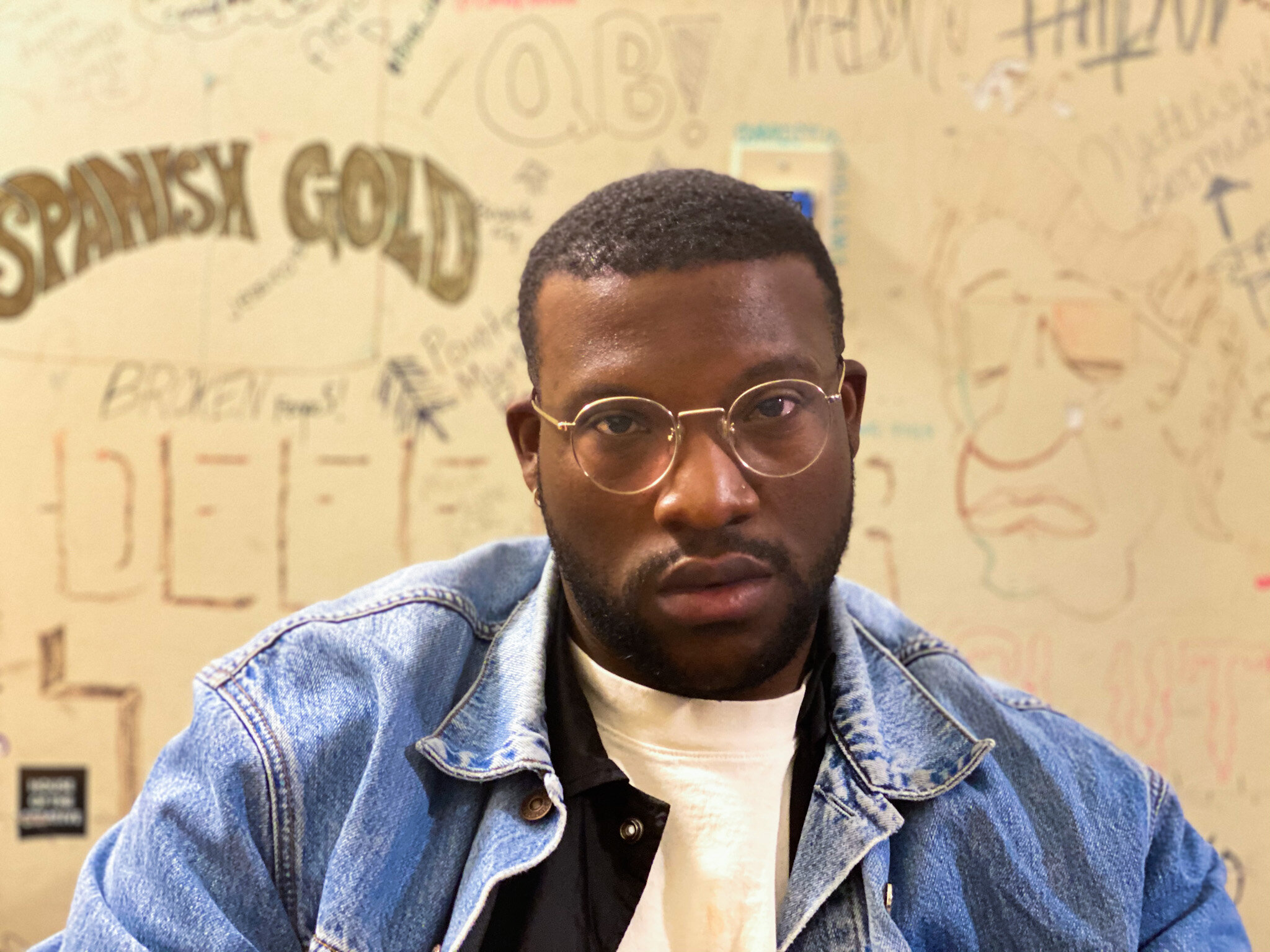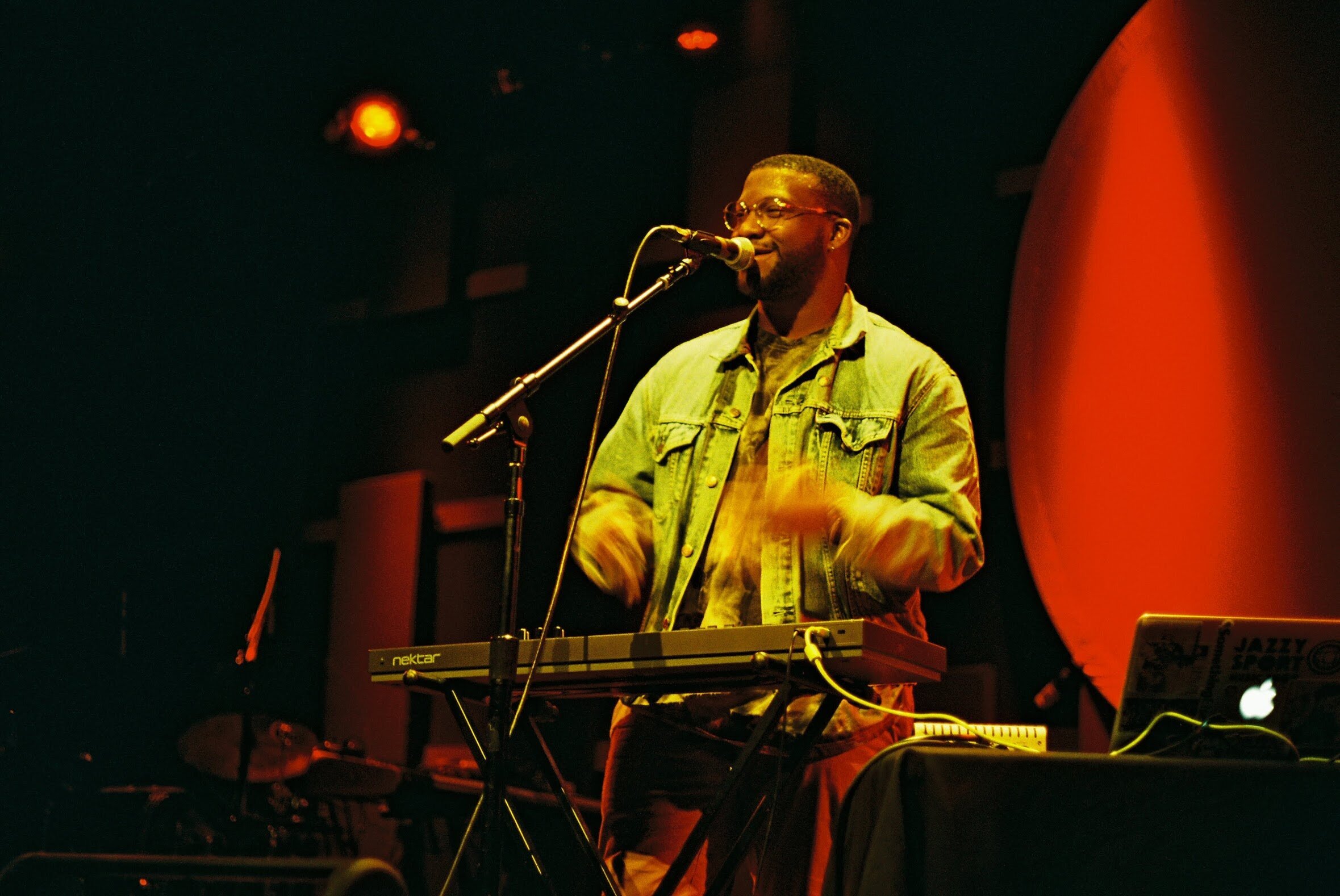Interview: Devin Morrison
April 4, 2020
In 1994, Commissioned released their eighth studio album, Matters of the Heart. Commissioned, which featured both Fred Hammond and Marvin Sapp, along with a cast of talented singers, helped bridge the divide between Gospel and R&B in the ‘90s. While successful, Matters of the Heart was the last album the group would release before Fred Hammond, the ostensible leader, would leave to pursue a solo career. Though no longer a formal group, Commissioned left an indelible mark on gospel music — a sound — for future generations to come.
Some twenty-odd years later, a young singer-songwriter and musician, Devin Morrison, would pick up that album in a time of need. Morrison, a native of Orlando, Florida, attended Oakwood University in Hunstville, Alabama, where he majored in music, and was a member of the fabled Aeolians choir. After Oakwood he would end up teaching english in Tokyo, getting fired, selling beats to make ends meet, and eventually landing in Los Angeles working full time as an artist. Devin’s got a story, and his journey to each of these places is worth knowing.
Last year, Devin Morrison released his debut album, Bussin’, an unabashedly joy-filled album dipped in the finest of 90s Gospel and R&B featuring some of the best voices in the genre today. In just a short time, Devin has made a name for himself, collaborating with the likes of Phonte, KING, and Daz Dillinger. After releasing his debut project, Morrison spent much of the year touring the the US and Europe, both as a headlining act and as an opener for Moonchild. In the latter portion of 2019, I sat down with Devin while he was in Philadelphia, for a wide-ranging conversation on everything from his love for Commissioned, to living in Tokyo, to getting fired three times in a year, and much more! Here’s our conversation:
Stanley: You put out your first album, Bussin’, with some incredible features like KING and Daz Dillinger, and you're currently touring with Moonchild. So, looking back, how's this year been for you?
Devin: It's been a rush. It's been quite an experience. Everything's just happening really fast. It's hard when you're really busy and everyone's like "oh, you're not making enough time for me." And you know it's just like I got to be able to pay my bills and still do what I want to do, and look out for the people I care about. That aside, it's been a blessing to do this for a living, and meet all of the people I've met. It's surreal, honestly.
Stanley: You're originally from Orlando. What was it like growing up there? What was the music scene like?
Devin: The scene, itself, is pretty small. It's hard to kind of make it out of Orlando, to a public eye, you know? And not be a "local artist" - unless you're like really, really dope. But yeah, I mean, growing up out there -- it's Florida at the end of the day. People aren't really into soulful stuff like that. Everyone's really into Trap, popular stuff. I mean, we had the Backstreet Boys and N'SYNC. Besides that, it's a lot very niche type cats out there. So, to make it out of there, and to put Orlando on the map a little bit is a blessing.
Stanley: What was your entry point into the more soulful music, given it wasn't as readily available?
Devin: I had to leave. You kind of have to leave that comfort zone. I grew up with brothers that were into Slum Village, and our parents are music heads. My family, which was initially based up north - Chicago, Philly - they had this really dope taste in music that a lot of people in Orlando didn't have. I didn't even know there were people in Orlando that were into the type of stuff I was into until I was 16, 17. And that's when I started to like Orlando lol. But after I left and moved to Tokyo, that's when my career started to really take off.
Stanley: How'd you end up in Tokyo?
Devin: After leaving college, I applied for a job teaching English, got fired, and I was selling beats to make it. Ended up linking up with my boy Fitz Ambro$e, Budamunk, and Submerse - they were all encouraging me to go the artist route. And I was like, scared, especially out there, it's kind of unpredictable. At the same time, I'm very adventurous, and things like that excite me. I just started putting out stuff on my own - and it got a good reception. I linked up with Onra, and he was like "I want to do a record with you," and things kind of took off from there.
Stanley: So, had you not been fired...
Devin: Yeah, I thank God for getting fired three times in one year lol.
Stanley: And it worked out! Before you went to Tokyo, you were in Alabama?
Devin: Yeah, I went to Oakwood for five years, then I lived in Orlando for a year, saved up my money for Tokyo. Then I was there for like a year and a half.
Stanley: What was the experience like being at Oakwood? How did being there shape you as an artist? If at all.
Devin: Oh, for sure! I mean, we're talking about a place that has cultivated great musical minds, like Take 6, Whitley Phipps, and so many others. Then you have younger people, like Mick Jenkins. Being in the music department, where I was a composition major, it definitely did teach me a lot, but I didn't feel "free" yet, though. That's the thing about Oakwood - I didn't feel free to do what I wanted, but that happened when I went to Tokyo.
Stanley: The Aeolians mean a lot to Oakwood and its musical tradition. Were you in the Aeolians while you were there?
Devin: I was in the Aeolians during my last year. I was actually the assistant to the conductor, so that was...interesting. It was cool. As a composer, you got to bring your 16-measures of music every week, and then you writing for all these different ensembles, which ultimately is exposing you to a bunch of different things. At the end of your last two years you do a recital. And that's when you get exposed to life as a composer for real for real - writing music and having to perform.
Stanley: You mentioned to Take 6. Listening to your music, I can hear a lot of them and Commissioned, and early Fred Hammond - were you always into that style of music or did that come later for you?
Devin: Yeah, Commissioned’s Love is The Way was my favorite song for a long time low key, but I hadn't really dug into them until I was in Tokyo, struggling, and that was the only thing helping my anxiety. Take 6 was kind of something I got into at Oakwood - but as much as I loooove Take 6, Commissioned was like the group that really helped me define my sound.
Stanley: Thinking about your sound - it felt like a lot of the features you had on this album fit really well, and didn't feel like stretch for yourself or the guests. How did you go about finding those artists?
Devin: Well, on the enneagram, I'm a type 4, which is like an individualist. We're known to want to create our own worlds and realities, so that's natural for me - to try to create my own world. All of the relationships happened really naturally. Like, Joyce [Wrice] ended up being my friend the second week I moved to LA. KING - I was fans of them for a while. I randomly hit them up and was like, "we should hang out" and they were like "Okay!" (laughs), so that happened very organically. I met Daz through Onra, Onra and he made the connection. Lakks Mable's my brother, that's pretty straightforward. Dah-Vi's my dad, he's on the first track. I asked him to be on it and he didn't even hesitate. Ace Hashimoto, who to this day I credit for starting my career, because he introduced me to Budda Monk and started me with everything, so shout out to Ace.
Stanley: You play the piano - how did you get your start with the instrument?
Devin: It was my grandmother's dying wish for me to take piano lessons. So, my mom listened to her and I took lessons off and on for years. I didn't think I would be good enough to do that for a living. My mentor at the time when I was 16 or 17 he suggested that I try out for Berklee College of Music to see if I could get in. I auditioned, got in, but it was too expensive, so my cousin Whitney mentioned that I should apply for Oakwood, and I was like yeah, whatever lol. And so a long story short, that's how that happened.
Stanley: How much did you know about Oakwood before going? Was it on your radar?
Devin: Nah, when she told me about it, it was the first time I had heard of Oakwood. It was a lot of firsts - first time eating vegetarian food.
Stanley: Ah, that's rough.
Devin: Yeah, it was lol.
Stanley: Like Morningstar?
Devin: Yeah, Morningstar, Boca Burgers. Yeah, it's not it.
Stanley: Where do you see yourself in the future? How do you see things working out?
Devin: I don't know, but I just want to have fun, you know? And be as honest as I can along the way. Keep it honest, keep it real, keep it fun, and try to keep it holy.

